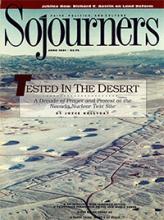For one of the few times in its 45-year history, the United Nations was truly center stage during the Gulf war. Much of the negotiations, decision making, and action of the international community in response to Iraq's invasion and occupation of Kuwait occurred in the chambers of the U.N. Security Council. And the newly efficient and determined body, long limited in its effectiveness by Cold War rivalries, was marked by unprecedented cooperation between its five "permanent" members -- China, France, the Soviet Union, United Kingdom, and the United States.
But in the aftermath of the Gulf war, many questions remain about the "successful" use of the collective security apparatus of the United Nations. The answers will determine what role the United Nations will play in bringing genuine peace and stability to the Middle East, as well as in resolving future conflicts and acts of aggression in other parts of the world.
The Security Council was established by the U.N. Charter in 1945 as the highest and most powerful body in the organization, responsible for the maintenance of international peace and security. Its resolutions are the only ones that are binding on all member states.
The Gulf crisis demonstrated that the Security Council can respond swiftly and resolutely to a clear act of aggression. The blatant action of Iraq brought a clear and unanimous condemnation from the international community. This unanimity, combined with a commitment of the five permanent members to take a collective response to the invasion, led to a series of 10 U.N. resolutions that utilized the U.N. Charter's provisions for non-military sanctions in a way never seen before.
Read the Full Article
